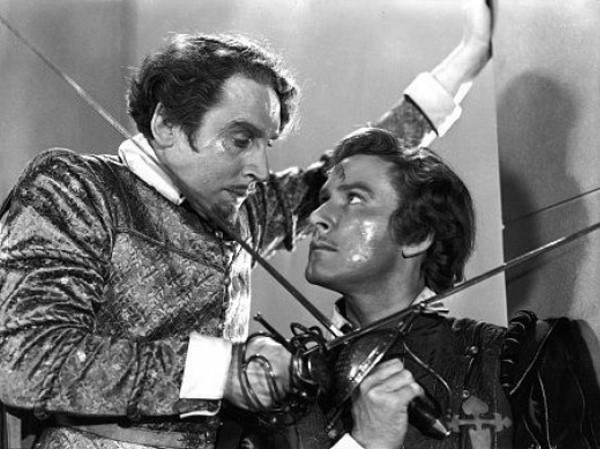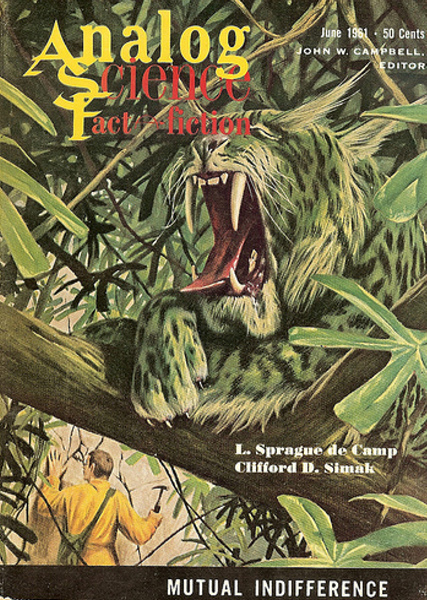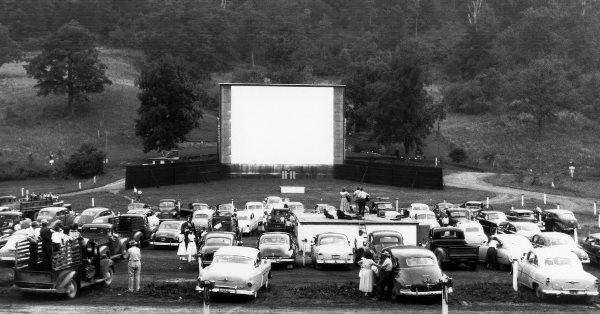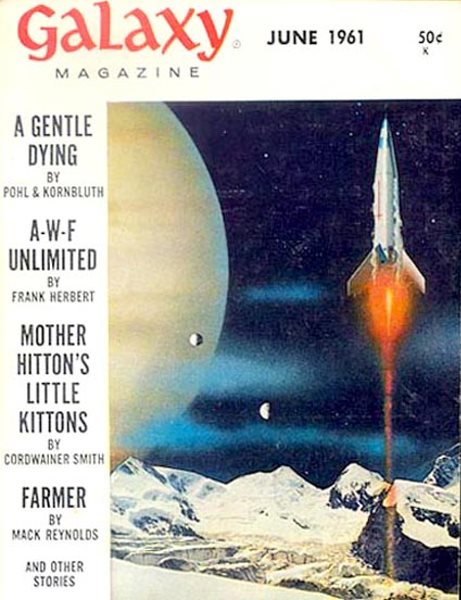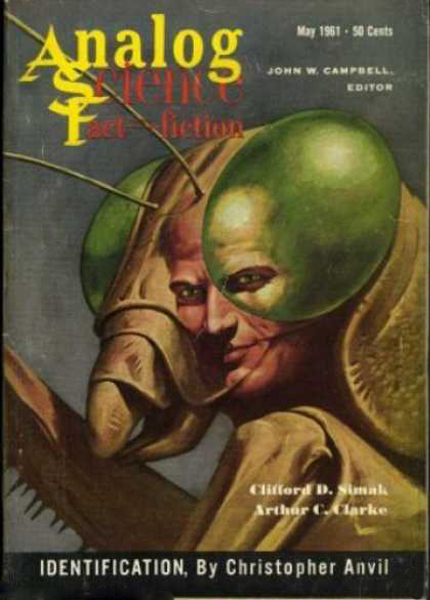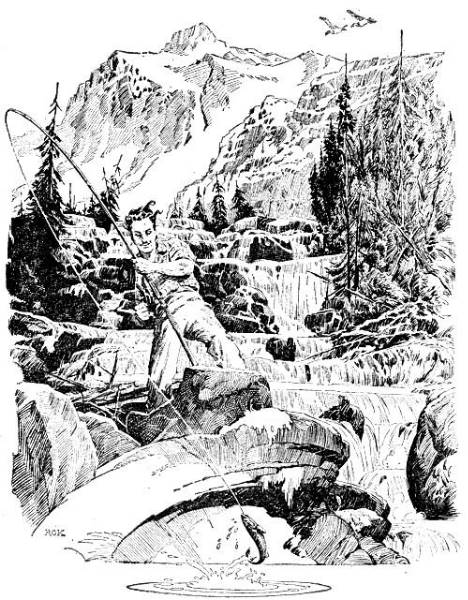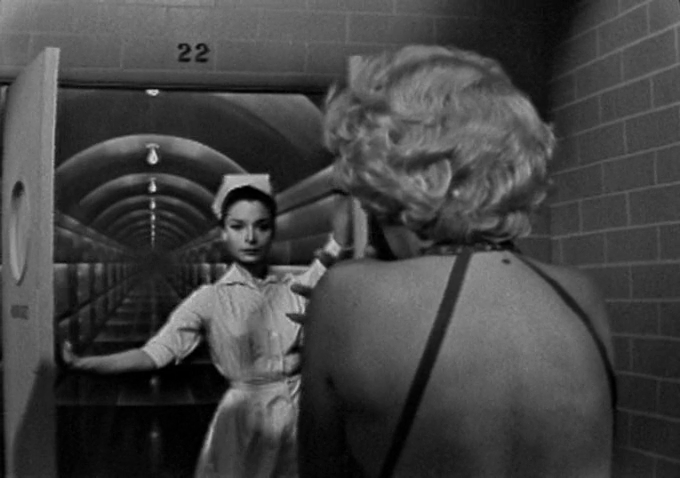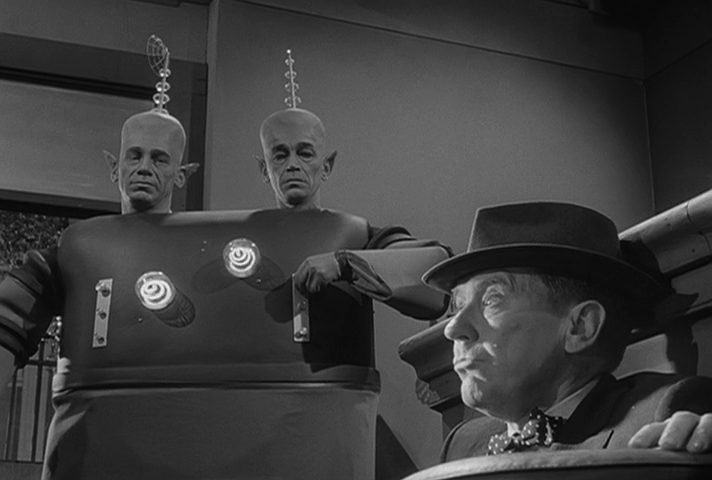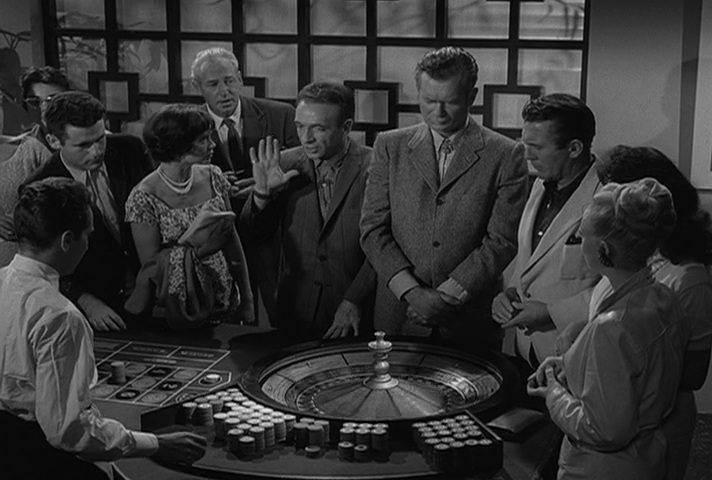
Have you ever heard/seen Karl Orrf's Carmina Burana? It's an opera of sorts, the performance of a set of medieval poems to music. It is likely that you're at least familiar with its opening number, the catchy Oh Fortuna!. Well, having seen Carmina, I can tell you that even Orff knew there wasn't much to the rest of the piece – as evidenced by the fact that Oh Fortuna! gets performed twice, once at the beginning and once at the end. You can snooze through the rest.
This month's Fantasy and Science Fiction is like Carmina: a tremendous beginning followed by a largely snoozeworthy remainder. I suppose that, if you want to complete the analogy, you can simply read the opening piece again after finishing the book. You probably will.

For Cordwainer Smith's Alpha Ralpha Boulevard is one of the best stories I've read in a long time. Most tales of the future are either frustratingly conventional or completely opaque. Not so in Boulevard, which features a world dominated by "Instrumentality", an omniscient computer dedicated to the happiness of humanity. 16,000 years from now, after a placid, highly regulated existence, people are, at last, offered the luxury of uncertainty (or at least the illusion thereof).
With just a few subtle strokes of his pen, Smith presents the trappings of an alien yet utterly believable world: the trio of reborn humans, programmed to think themselves French; the compelling homunculi, servant animals bred into a mockery of the human shape; the servile androids; the contrived movie-set surroundings; the ancient, decayed ruins of the old technology. Moreover, Boulevard has a great story, the quest for meaning in a predestined world. It's a masterpiece – evocative and brilliant. Five stars.
Arthur C. Clarke's Crime on Mars is an adequate (but not exceptional) little art heist mystery. I find it interesting that he publishes these very straight sf stories here rather than other, perhaps more suited, mags. Perhaps there wasn't room in the other digests (or perhaps F&SF pays the best rates!) Three stars.
George, on the other hand, by John Anthony West, is a dreadful slog: a henpecked husband slowly succumbs to a creeping paralysis over the course of an evening; the story is told mostly in shrill exchanges between the afflicted and his spouse. One Star.
Doris Pitkin Buck's Birth of a Gardener is another domestic dispute piece with some vague nonsense about anti-matter. Although Gardener makes good use of Buck's personal expertise in horticulture, her knowledge of science is less complete. Two stories.
Mark Twain's reprinted A Curious Pleasure Excursion, an advertisement for a comet ride in the style of the great ocean cruises of the last century, is clever and funny — an all-too-brief island of quality in an sea of dreck (to continue the sailing metaphor). Four stars.
Go for Baroque is the second woman-penned piece in the magazine, by mystery writer Jody Scott. I think it's about a crazy time traveler who cures the sane of our world with his chaotic, exuberant madness. Maybe. It's hard to tell. It is written in this "modern" style that I see more and more in more literary places, half stream-of-consciousness, half nonsense. I really don't like it. Two stars.
By popular demand, I include this month's pun-ishment, the latest tale of Ferdinand Feghoot. Read at your personal peril.
Older writers are interesting. They tend to stick to old techniques and clichés even as they adapt them to current themes. Miriam Allen Deford's, The Cage, reads like a Lovecraft tale, complete with a mad scientist regaling a young reporter of his horrifying plan. In this case, it is the breeding of a race of super-insects to supplant humanity in the event of a nuclear war. But the author somehow elevates the story to something more than the sum of its parts, steering it subtly to a thoughtful conclusion. Three stars.
What do you get when you combine the carefree misogyny of Randall Garrett with the increasingly impenetrable prose of (the once masterful) Avram Davidson? Why, Something Rich and Strange, about a connoisseur of seafood and women who sails off to find a mermaid to love, a task at which he is ultimately successful. With many pages devoted to lurid descriptions of pescatory cuisine, I had a strong suspicion that the tale would end with the protagonist eating his fishy sweetheart. Rather, it turns out that the siren is an old hag with, nevertheless, admirable culinary talents. The punchline is thus, "She's not much to look at, but she sure can cook!" One star.
So perhaps I may end up owing my friend, Mike, a beer or two after all, since he may be right that 1961 will not be F&SF's year to win the Best Magazine Hugo. Normally my favorite of the Big Three SFF digests, F&SF came in at the bottom of the heap this month at just 2.75 stars. Compare this to Analog's 3 stars, and Galaxy's stellar 3.5 stars.
On the plus side, this month saw the most stories by women: four out of twenty-two. I won't call it a trend until I see this proportion again, of course. Interestingly, the top contenders for Best Story were both written by Cordwainer Smith. Maybe the fellow should start his own magazine…




